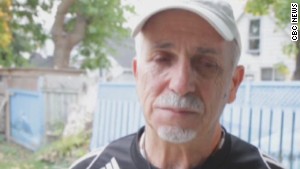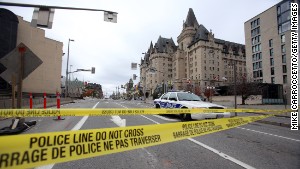In the newest issue of Dabiq, the English-language magazine published by ISIS, the extremist group for the first time confirmed and justified the capturing, enslaving, and selling of Yazidi women and children. The article surfaced as anew report from Human Rights Watch said that hundreds of Yazidis are being held captive in makeshift detention facilities in Iraq and Syria, and that some young women and teenagers are being forced to marry the group's fighters.
“The Islamic State’s litany of horrific crimes against the Yezidis in Iraq only keeps growing,” said Fred Abrahams, special advisor at Human Rights Watch. “We heard shocking stories of forced religious conversions, forced marriage, and even sexual assault and slavery—and some of the victims were children.”
In the article, "The Revival of Slavery Before the Hour," the magazine stated that "the enslaved Yazidi families are now sold by the Islamic State soldiers," adding that, "the Yazidi women and children were then divided according to the Shariah amongst the fighters of the Islamic State who participated in the Sinjar operations."
Referring to the Yazidis as "pagans" and "infidels," the article said, "Their creed is so deviant from the truth that even cross-worshipping Christians for ages considered them devil worshippers and Satanists, as is recorded in accounts of Westerners and Orientalists who encountered them or studied them."
The publication of an article like this is obviously part of an intimidation effort. Elsewhere in the magazine, ISIS spokesperson Mohammed al-Adnani threatens, "We will conquer your Rome, break your crosses, and enslave your women."
But ISIS is also boasting about what its members see as the revival of important institutions such as slavery. "Before Shaytan reveals his doubts to the weak-minded and weak hearted, one would remember that enslaving the families of the [infidels] and taking their women as concubines is a firmly established aspect of Shariah that if one were to deny or mock, he would be denying or mocking the verses of the Quran and the narrations of the Prophet, and thereby apostatizing from Islam," the article says. "... May Allah bless this Islamic State with the revival of further aspects of the religion occurring at its hands."
The United Nations estimates that at least 500,000 Yazidis fled their homes in northern Iraq after ISIS waged a major offensive in August on Sinjar, pushing tens of thousands to Mt. Sinjar where they were stranded for weeks.
Researchers with Human Rights Watch, who interviewed 76 Yazidis who fled to the Kurdish region of Iraq and 16 Yazidis who managed to escape ISIS detention, said that none of those who had been detained said they had been raped, although several said they had fought off violent attacks.
"As much as we could, we didn't let them touch our bodies," said one young woman who had been abducted but managed to escape. "Everything they did, they did by force."
However, fully disclosing assault may be curbed by social norms among Yazidis.
"The biggest taboo is not being captured, it is being [sexually] assaulted," Tirana Hassan, senior researcher at Human Rights Watch's Emergencies Division, told Vice News. "The Yezidis are a small, conservative community and women will go great lengths to ensure this is private, to make sure they are not ostracized by the community. Virginity is a very important concept."
PLz check out my Pakistani Cousin's Blogs at:
http://zssgluvcricket.blogspot.com/
http://sulemansadiqgill.blogspot.com/
 PKK Commander Ozlem
PKK Commander Ozlem A Peshmerga fighter leads training exercises on a base in northern Iraq.
A Peshmerga fighter leads training exercises on a base in northern Iraq.






